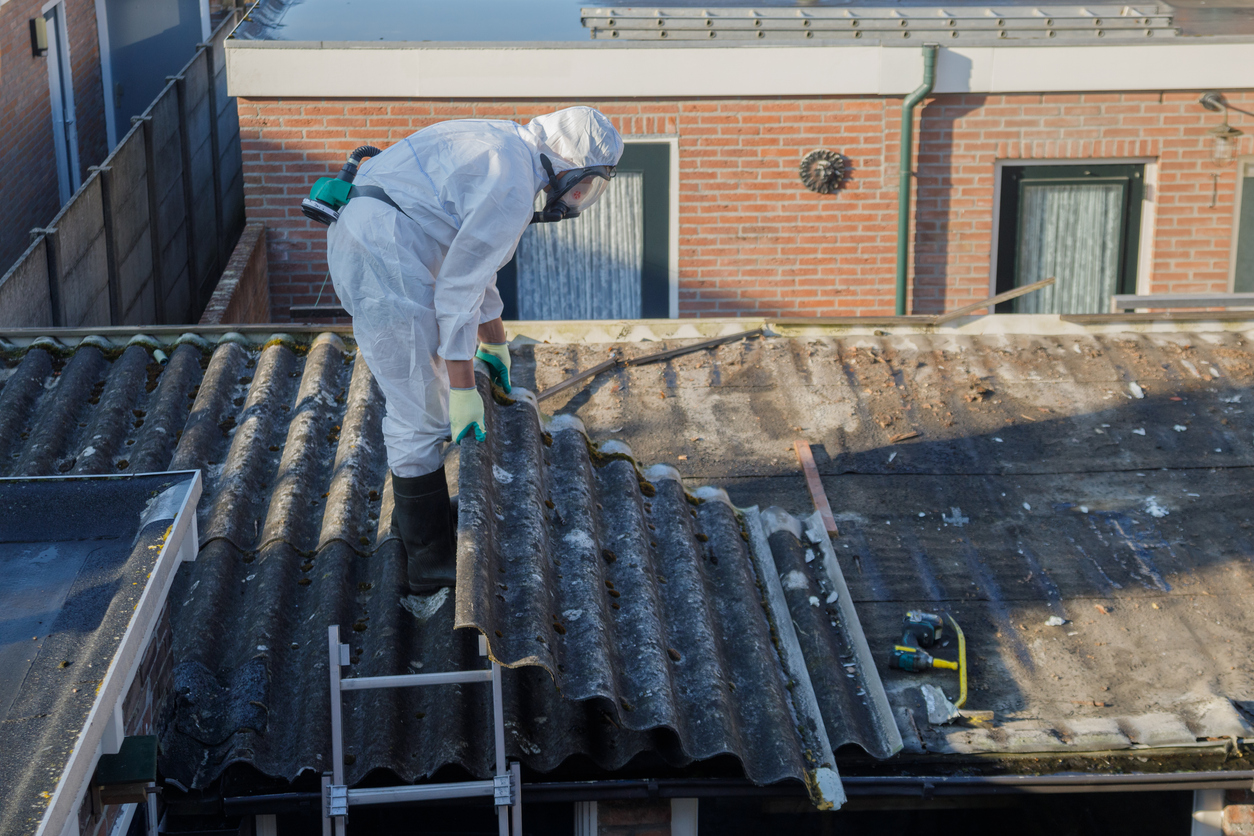Exposed to Silica?
Silicosis Solicitors in Queensland.
Exposed to silica?
Silicosis is a permanent and progressive lung disease caused by the inhalation of crystalline silica. The increasing use of artificial stone products containing higher concentrations of crystalline silica over marble and granite for benchtops has contributed to a rise of workers developing silicosis.
If you have been diagnosed with silicosis and their is a connection between your condition and the nature of your employment, you may be entitled to claim compensation for:
- Pain and suffering
- Medical and related expenses
- Loss of income
Our occupational diseases team have seen how traumatic the effects of silicosis can be on not just the person affected but their family and friends. Our aim is to take away the financial stress that comes with making a claim, which is why we offer our service on a No Win, No Fee basis. This means that in the unlikely event that we don’t succeed in securing compensation for you, we will not charge you for any of our professional fees.
If you think you might be at risk, or have been exposed to silica during the course of your employment, our team will sit down with you and advise you of your rights and the best possible legal path for you to take.
We’re here to help
Tell us a little bit about your situation and our friendly team will be in touch.
What to do next?
We understand that making a claim can be stressful, which is why we have broken down the process in 3 simple steps to start you on your journey.
1
Contact us today to book
your appointment
To contact us, simply fill out the form below and a member of our friendly team will contact you to set up a free, no-obligation initial appointment. Alternatively, you could give us a call on 07 5675 1300.
2
Meet with one of
our lawyers
Once you have made contact, you will have your appointment with one of our lawyers. We have multiple convenient locations, so you can find an office that is closest to you. Alternatively, we offer home or hospital appointments, ensuring you can be heard no matter your circumstances.
3
Discuss your
options
Once you have had your Free, No-Obligation initial appointment, our team will discuss your options with you and make a collaborative decision of the best course of action.
We’re here
to help
You can use the form below to leave your details and a member of our team will be in contact. We offer free, no-obligation initial appointments.
If you would prefer to speak with us right away, or you have any questions, please give us a call.
FAQs
Have a
question?
We have
the answer.
Silica, also known as ‘silicon dioxide’, is a natural mineral that is present in most rocks, gravel, sand and clay. Crystalline silica, also known as ‘free silica’ is most commonly found in quartz and can also be found in cristobalite and tridymite. Granite contains 25 per cent to 40 per cent quartz and sandstone contains on average 67 per cent quartz. Artificial stone engineered for kitchen and bathroom benchtops can contain between 70 per cent to 90 per cent crystalline silica. Exposure to breathable crystalline silica can occur through activities including:
- The excavation, moving and drilling of earth;
- Mining;
- Paving and surfacing;
- Construction activities;
- The blasting, cutting, grinding, chipping, sanding, drilling, polishing, assembly and installation of natural and manufactured stone products such as benchtops and tombstones; and
- The manufacture of asphalt, cement, bricks, china, ceramics, glass and even adhesives, paints, soaps and abrasives.
Silicosis, a form of pneumoconiosis, is a permanent and progressive occupational lung disease caused by the inhalation of crystalline silica.
The silica becomes trapped in the lungs and accumulates with exposure. Lung tissue reacts to the silica by forming fibrotic nodules, scarring and inflammation. Silicosis has been linked to an increased risk of developing other conditions such as lung cancer, kidney disease, autoimmune disease, tuberculosis and bronchitis.
Cigarette smoking can progress and/or worsen symptoms.
Silicosis is classified into three types:
- Acute: Acute silicosis can occur after a few months or a few years depending on the level and duration of exposure to high concentrations of crystalline silica. Acute silicosis tends to occur where a worker was exposed to crystalline silica in a confined space and was not wearing respiratory protection.
- Accelerated: Accelerated silicosis occurs after approximately five to 10 years of high exposure to dust containing crystalline silica.
- Chronic: chronic silicosis is the most common form of silicosis and occurs after approximately 10-30 years of moderate to low exposure to dust containing crystalline silica. Symptoms may not be obvious until the later stages of the disease and may include fatigue, shortness of breath or respiratory failure.
Silicosis is preventable through the establishment of workplace measures that reduce dust and thereby limit exposure, however once silicosis is established there is no cure; instead treatments are focused on managing the symptoms.
People who work in mining, quarrying, construction, ceramics, engineering and stonemasonry are among those who have the highest risk of exposure to crystalline silica.
If you or someone you know currently or previously worked in an occupation where they may have been exposed to crystalline silica it is recommended that they consult a general practitioner or specialist to determine they have any conditions or diseases due to the potential exposure.
Given that the period between exposure and the onset of symptoms can be lengthy by decades, early preventative measures and detection is recommended.
If you do have silicosis and there is a likely connection between your condition and the nature of your employment is it recommended that you consult a Personal Injury Lawyer as soon as possible.
Zaparas Lawyers have a dedicated team that can assist in explaining your prospects in making a WorkCover claim, explain any WorkCover entitlements you may have and assist you in navigating the WorkCover system.
It is most beneficial that you bring all relevant documentation you have, such as completed claim forms, letters from the Insurer and your employer, medical reports, radiological investigations and any other documents that may be relevant.
We know how hard it can be to navigate the legal process, but it can be even harder when English is your second language. That’s why we employ a diverse group of people who speak over 15 different languages to make the process as smooth as it possibly can be.
If we don’t have a lawyer who can speak your language, we also have access to a wide network of professional interpreters, meaning we’re here to help you every step of the way in a language that you understand.
When an injury is sustained, it is not only a traumatic and often life changing experience, it often causes great financial strain to the injured party and their family.
This is why Zaparas Lawyers operates on a No Win, No Fee* basis. This means that in the unlikely event that we don’t succeed in securing compensation for you, we will not charge you for any of our professional fees.
You may also be entitled to other claims such as:
- Total and Permanent Disablement or Permanent Incapacity claims within your Superannuation Scheme;
- Income Protection Claim; and
- Incolink.
These schemes are dependant on your unique policy and they all hold various and specific requirements that need to be satisfied.
At Zaparas Lawyers, we have a dedicated Superannuation department who will be able to assist in exploring all your potential rights and entitlements.
In the unfortunate circumstances, where an injured worker dies as a result of their work-related injuries, the following statutory benefits compensation may be available:
- Reasonable medical and like services;
- Burial or cremation costs;
- Family counselling;
- Reasonable travel or accommodation expenses occurred by family members may be covered where:
- Death results from the injury
- A burial service or cremation service is held in respect of the worker
- The service is held at least 100KM from the normal residence of the worker’s family members and
- The travelling or accommodation expenses are incurred within Australia
- Lump sum dependency payment; and
- Weekly pension for dependent partner/s, child/ren and orphans
- Reimbursement of expenses for non-dependent family members.
A claim for statutory dependency entitlements (lump sum and weekly pensions) must be given to, served or lodged:
- within two years of the death of the worker or
- if claiming for expenses for medical and like services provided to the worker, burial or cremation or family counselling, within six months of the date of the relevant service.
In some cases, common law damages for wrongful/negligent death may be able to be pursued by dependents. Generally this action must be commenced within six years from when the action founded on tort arose.
Latest Blogs On Occupational Disease Claims
-

World Cancer Day 2025: Understanding Occupational Cancers
Cancer affects over a million Australians, with 3 in 10 deaths attributable to cancer and an estimated 5000 new cases of work-related cancer annually. World Cancer Day, on February 4th, serves as a reminder of the importance of early detection…
-

What is the Link between the Beauty Industry and Occupational Disease?
What is the Link between the Beauty Industry and Disease? Workers in the beauty industry are vulnerable to several health risks due to the presence of toxic substances like volatile organic compounds (VOCs). These substances, including aromatics, ketones, esters, and…




